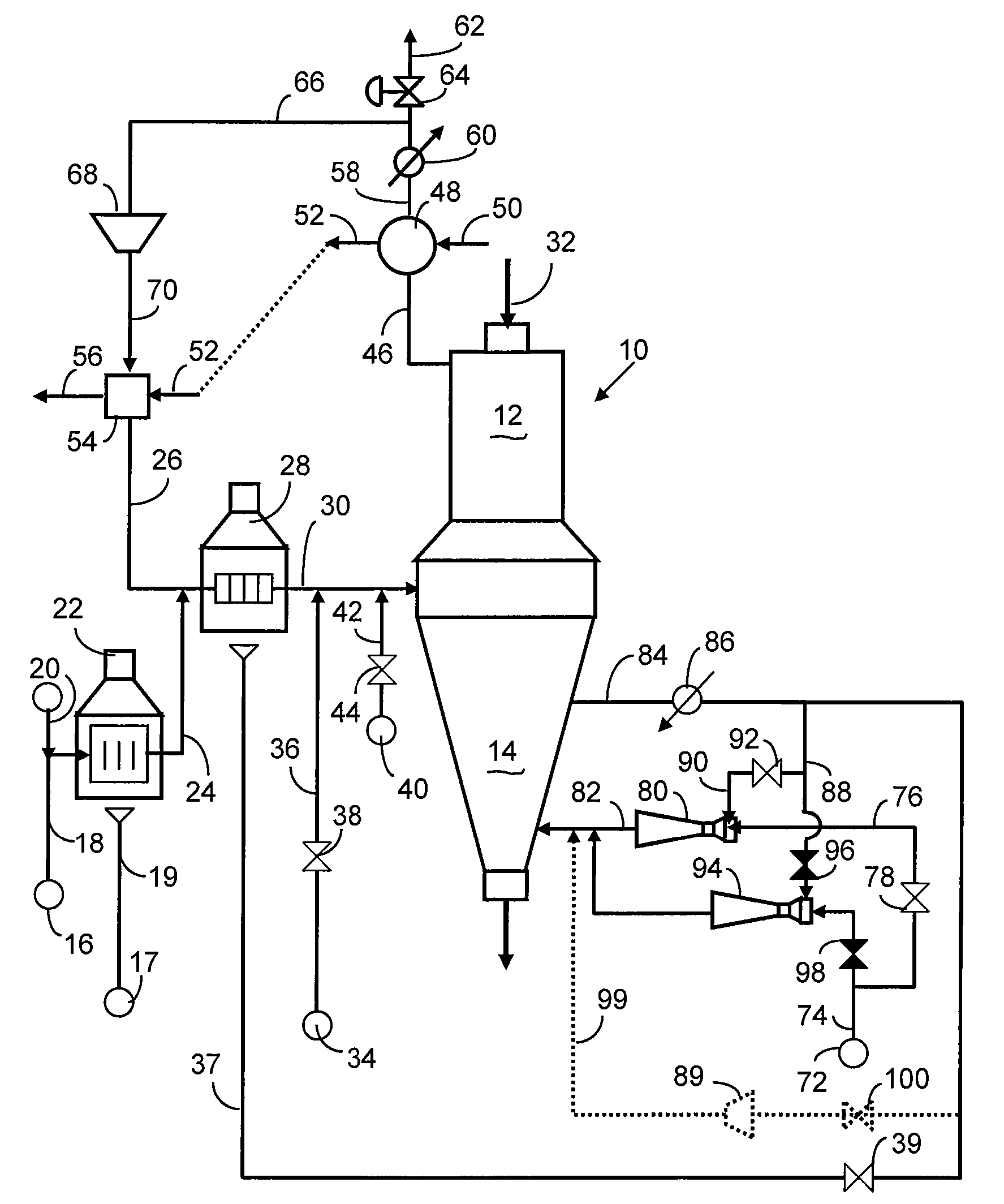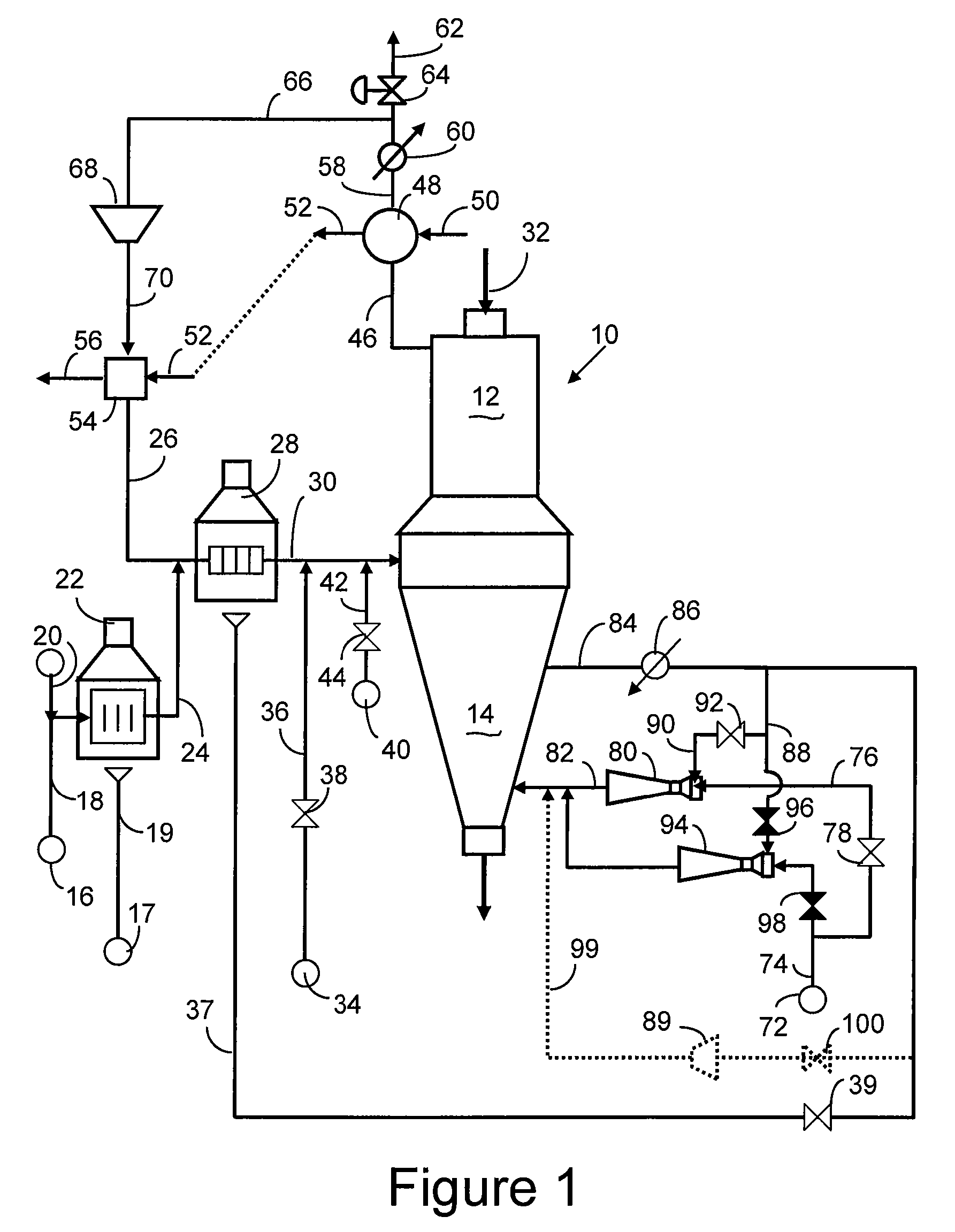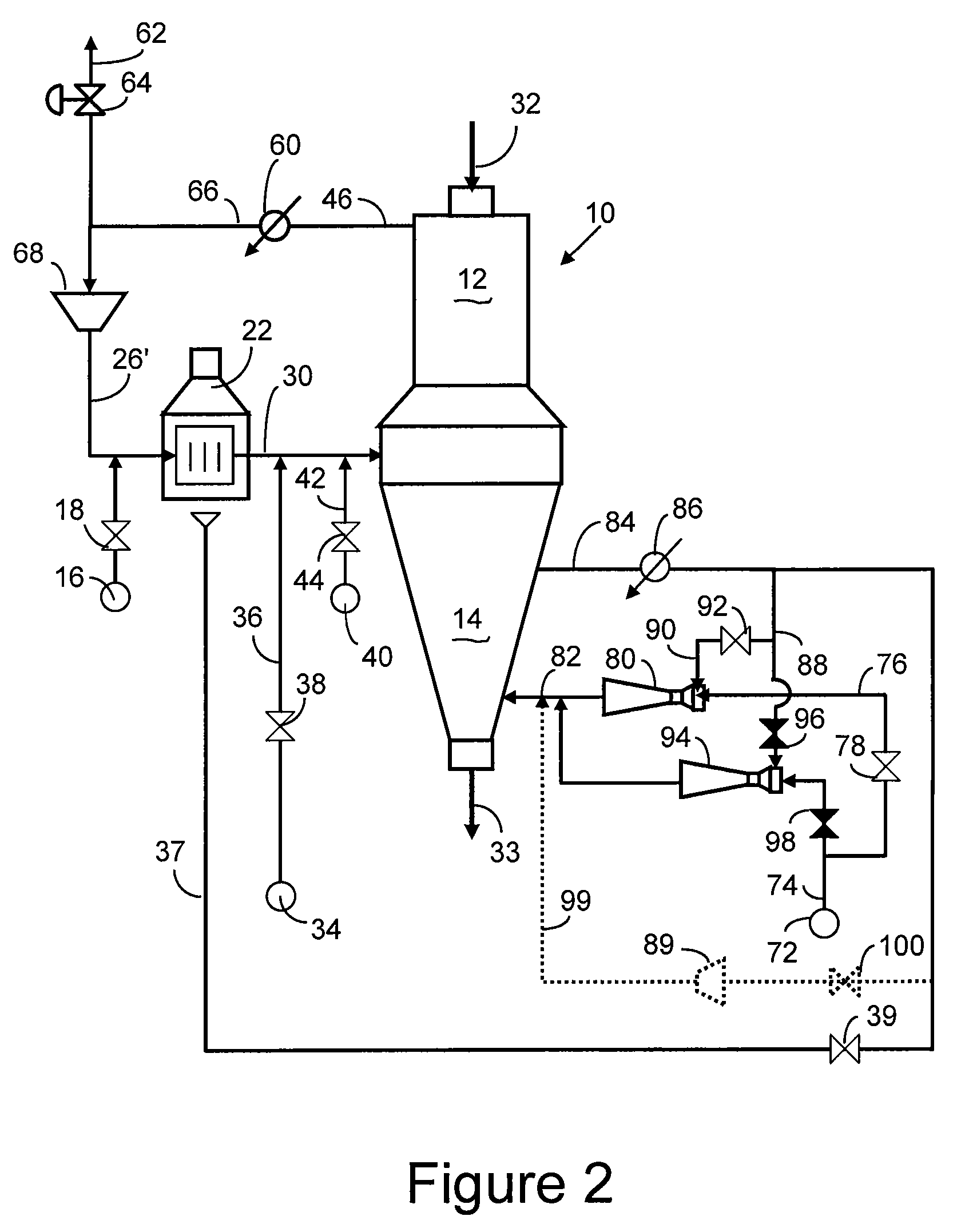Method and apparatus for producing direct reduced iron
a technology of iron oxide particles and reduction methods, which is applied in the direction of manufacturing converters, machines/engines, furniture, etc., can solve the problems of reducing the operational savings in electrical energy and upkeep, and the suggestion of using ejectors has not proved practical, so as to achieve significant capital and operational expenses, less expensive equipment, and less electrical energy.
- Summary
- Abstract
- Description
- Claims
- Application Information
AI Technical Summary
Benefits of technology
Problems solved by technology
Method used
Image
Examples
example1
[0045]The cooling gas compressor in a direct reduction plant with the embodiment of the process shown in FIG. 1 was substituted by an ejector utilizing as motive gas a stream of natural gas fed at a pressure of 12 kg / cm2 absolute and at temperature of 25° C. The flow rate of natural gas fed to the ejector was 175 NCMH per metric Ton of Fe produced. The composition of natural gas was: 1.6% H2; 1.1% CO2; 93.3% CH4; 0.5% N2; 2.7% C2H6; and 0.8% C3H8. The flow rate of recycle cooling gas entering the ejector was 301 NCMH per metric ton of Fe produced at a pressure of 4.65 kg / cm2 absolute and with a composition as follows: 9.266% H2; 0.129% CO; 0.207% CO2; 89.089% CH4; 0.474% N2; and 0.836% H2O.
[0046]A stream of cooling gas, effluent from the ejector at a pressure of 5.25 kg / cm2 absolute, entered the cooling zone at a flow rate of 476 NCMH per ton of Fe produced, at a temperature of 27° C. and having the following composition: 6.448% H2; 0.082% CO; 0.535% CO2; 90.637% CH4; 0.484% N2; 0.5...
PUM
| Property | Measurement | Unit |
|---|---|---|
| temperature | aaaaa | aaaaa |
| temperature | aaaaa | aaaaa |
| temperature | aaaaa | aaaaa |
Abstract
Description
Claims
Application Information
 Login to View More
Login to View More - R&D
- Intellectual Property
- Life Sciences
- Materials
- Tech Scout
- Unparalleled Data Quality
- Higher Quality Content
- 60% Fewer Hallucinations
Browse by: Latest US Patents, China's latest patents, Technical Efficacy Thesaurus, Application Domain, Technology Topic, Popular Technical Reports.
© 2025 PatSnap. All rights reserved.Legal|Privacy policy|Modern Slavery Act Transparency Statement|Sitemap|About US| Contact US: help@patsnap.com



